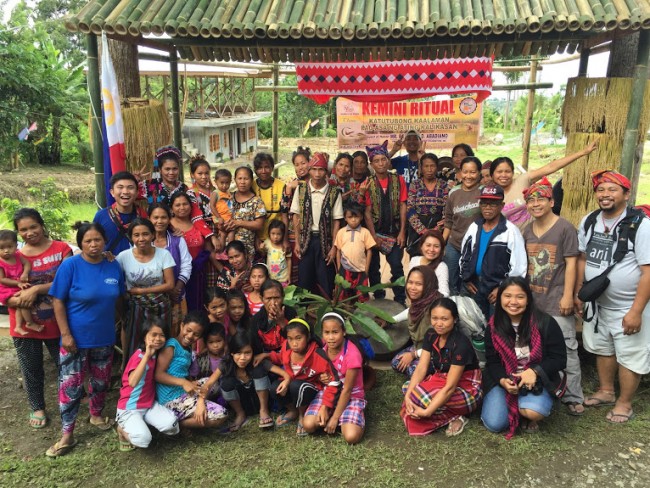Selected members of the Ateneo de Davao University (AdDU) witnessed first hand the Kemini Ritual done by the Tboli community at Sitio Lamkwa, Barangay Klubi, Lake Sebu, South Cotabato last July 31 to August 1.
The Kemini ritual or the season’s first rice harvest was headed by some 30 Tboli women.
The ritual was divided into two days. First was the harvest proper, then followed by the thanksgiving rites the next day.
As noted by the Lake Sebu Indigenous Women Weavers Association, Inc. (LASIWWAI), a non-stock, non-profit community based educational learning institution, the Kemini Ritual was last practiced 30 years ago. It was only now that the tradition was revived.
LASIWWAI President, Jenita Eko said in Filipino that they are really thankful for Ateneo in helping the community not only to document the entire ritual, but also for aiding the younger generation replicate the practice.
Eko said the Ateneo’s research for the Tboli Senior High School curriculum gave the elders the idea of reviving the said ritual.
In addition, Assistant to the President for External Affairs Vinci Bueza said, we started the documentation in March during the planting in the site.
“Now, it is really surprising to see the abundant rice harvest. We could say it is indeed a blessing,” he said in Filipino.
The upland rice harvested was purely organic and grown without the use of pesticides.
Moreover, one of the primary supporters of the Tboli community was Magsaysay Awardee and President of ASSISI Development Foundation Inc. Benjamin D. Abadiano.
“Patuloy kaming susuporta sa inyo dahil nakikita naming ang kahalagahan ng inyong ginagawa,” (We will continue to support the community because we see the importance of what you are doing) he said.
On the other hand, AdDU Physical Education instructor, Jade K. Halilio said it was his first time to see the Kemini Ritual.
“We are already living in the 21st century and most of them are already Christianized but I still find it admirable that they were able to preserve their culture and tradition,” he said in Filipino.
“They pass on the knowledge to the younger generation through letting the children participate in the different activities. As a PE teacher I observed that even the young could execute the dance movement precisely and it is something to be really proud of,” he added.
Halilio also stated, what he liked most of the Tboli culture was their respect not only for their fellowmen but most especially their respect for the environment.
Meanwhile, Benjie M. Manuel, teacher from the Tboli Senior High School said in vernacular that they need to pass on to the next generation all the customs and traditions to keep the culture alive.
“We need to stress out the importance of being proud of being a Tboli. We have a rich culture, with rich practices. But most of all, we give importance in taking care of the environment,” he added.
“We always remind our students that we need to be stewards of nature. We do not own the land, but the land owns us,” he ended.
The Tboli cultural preservation is integrated along with the mode of instruction of the first Senior High School project in the Philippines in Lake Sebu.
The accomplishment of the Tboli Senior High school project was the result of the collaborative efforts of University president Fr. Joel E. Tabora, SJ and Department of Education Secretary Bro. Armin Luistro.
